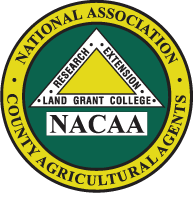BOVINE RESPIRATORY DISEASE RISK REDUCTION FROM BLOODLINES TO FENCELINES
Proposed by: Dr.Susan Kerr
Presenters: Kerr, Susan, WSU NW Regional Livestock And Dairy Extension Specialist, Washington State University, Mount Vernon, WA 98273
Hudson, Tip, Regional Rangeland and Livestock Extension Specialist, Washington State University, Ellensburg, WA 98926
The 2007-2008 USDA National Animal Health Monitoring System Beef Study documented that Bovine Respiratory Disease (BRD) is a serious health challenge for U.S. beef cow-calf producers: respiratory disease is the most common cause of death in calves over three weeks old. The Washington State University (WSU) Beef Team, already engaged in a five-year USDA-funded project called “An Integrated Approach to Control of Bovine Respiratory Diseases”, obtained additional funding from the Western Center for Risk Management Education to fund an outreach series to present newly-developed, evidence-based educational materials to cow-calf producers throughout Washington. Team members conducted workshops in five locations, directly reaching 132 producers. At each workshop, producers were asked to complete a self-assessment of their ranch’s BRD risk, received notebooks with 11 educational modules, interacted with Extension professionals delivering educational content and were encouraged to request an on-farm BRD risk assessment conducted by team members. Educational module topics focusing on reducing BRD risk included managing pregnant cows; calving management; optimizing calf care; weaning procedures; cattle handling; vaccinations; preconditioning; transportation; biosecurity; health at feedlot arrival; and documenting BRD incidence and health costs. An audience response system measured knowledge gains immediately after each workshop. Results indicate substantial increases in all evaluated areas. The fact sheets generated through this program will enter the WSU publication system to increase their access and impact. In the coming months, team members will visit cow-calf ranches to conduct requested BRD risk assessments and help producers develop management plans to lower the BRD risk of their herds.
